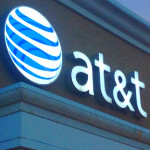Former IBM Vice President and Assistant General Counsel David Walsh has joined Hogan Lovells’ Boston office as senior counsel in the Antitrust, Competition and Economic Regulation practice.
“Hogan Lovells’ global regulatory practice has an exceptional reputation for being able to handle complicated cross-border matters seamlessly,” said Walsh. “I have worked with the team at Hogan Lovells for many years, and am looking forward to collaborating with them on a more regular basis.”
Walsh started his career with IBM and was a senior lawyer at IBM for over 36 years. Before joining Hogan Lovells, Walsh served in several senior legal leadership positions including, most recently, as the leader of IBM’s Global Business Services legal department, as well as leading IBM’s merger and acquisition and antitrust legal teams. He was also a member of IBM’s global senior leadership team. In addition, Walsh served as IBM’s head of global antitrust for many years, where his accomplishments included successfully resolving multiple matters involving the US Department of Justice, the European Commission, and other antitrust authorities.
In a release, the firm said Walsh’s choice to join Hogan Lovells is a product of the long-term relationship that has existed between IBM and Hogan Lovells for more than 30 years, including with respect to antitrust matters.
“We are delighted that after years of working with him at IBM, David has decided to join our team,” said Edith Ramirez, co-head of the firm’s Antitrust, Competition, and Economic Regulation practice. “His onboarding will strengthen our relationship with IBM, a long-time client, and also bolster our experience to clients in the technology industry.”
Walsh earned his J.D. from Suffolk University Law School in 1992 and his B.A. from the University of Miami in 1979.





